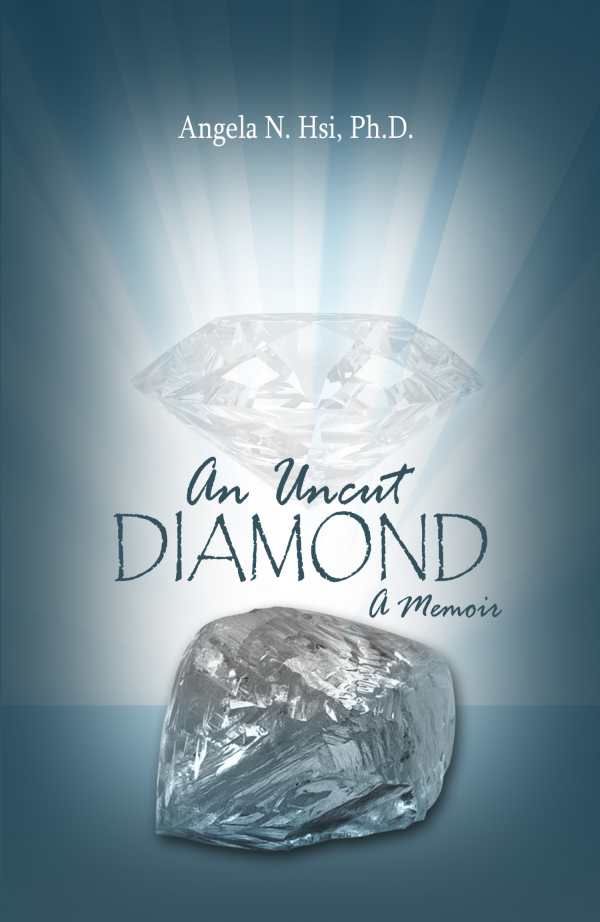
An Uncut Diamond
A Memoir
This tough yet valuable memoir reveals a woman who overcame a harsh upbringing; learning to love herself becomes an act of courage.
At once an origin story and a journey into academia, An Uncut Diamond traverses history with arresting clarity. Angela N. Hsi’s memoir details her life in China, Taiwan, and the US, revealing the challenges of immigrating to carve out a new identity.
The memoir begins with Hsi’s orphaned parents, who met in 1930, before Japan’s invasion of China. Meticulous scenes draw a flourishing intellectual milieu, setting the stage for losses to come. Political context skillfully braids with Hsi’s family background to offer an incisive view of a troubled era. The book then explores the stretch after Hsi’s birth in 1939, including the war, the family’s flight to Taiwan, and Hsi’s formative years in an educational system that thwarted creativity while punishing outspokenness.
Despite hardship, including her parents’ favoritism toward their sons and various abuses, there’s seldom overdrawn bitterness. The Taiwan of the 1950s comes alive in all its unsparing moments, which are thoughtfully balanced by glimpses of the author’s spirited resourcefulness. It’s a sharp contrast, then, when the book veers into Hsi’s early adulthood.
Middle chapters unfold in painstaking, chronological episodes. The details of settling in the US to attend graduate school slow the pace. They cover transfers to universities in multiple states and frustrating changes in housing situations. The numerous history departments Hsi attended blur into a series of initially exciting but ultimately dissatisfying sites. The result is a repetitive pattern of uprooting and re-describing the problems of starting anew. Along the way, love and marriage provide additional narrative strands, though they’re sometimes lost amid the arcane nature of exploring academia.
Hsi’s dream of becoming a historian seems stymied as much by the prejudices and gendered ideas of the era as by other issues that are glanced on but left unexplored. Without reflective hindsight, the richer substory on how truth is shaped and how histories differ in the telling—especially when it comes to revisiting ideas of home from a distance—ends up being subsumed by logistics.
The final section shifts in tone when discussing a failed research project. It’s both specialized in its details and defensive, including the text of a letter sent to a professor after the work was rejected. Rather than serving as a window into the emotionally pivotal episode, it seems out of place. The memoir winds down with a sudden career change that reads as an abrupt conclusion to a lifelong quest, though the book’s epilogue adds some hindsight.
Like the uncut diamond of its title, this tough yet valuable memoir reveals a woman who overcame a harsh upbringing; learning to love herself becomes an act of courage.
Reviewed by
Karen Rigby
Disclosure: This article is not an endorsement, but a review. The publisher of this book provided free copies of the book and paid a small fee to have their book reviewed by a professional reviewer. Foreword Reviews and Clarion Reviews make no guarantee that the publisher will receive a positive review. Foreword Magazine, Inc. is disclosing this in accordance with the Federal Trade Commission’s 16 CFR, Part 255.
